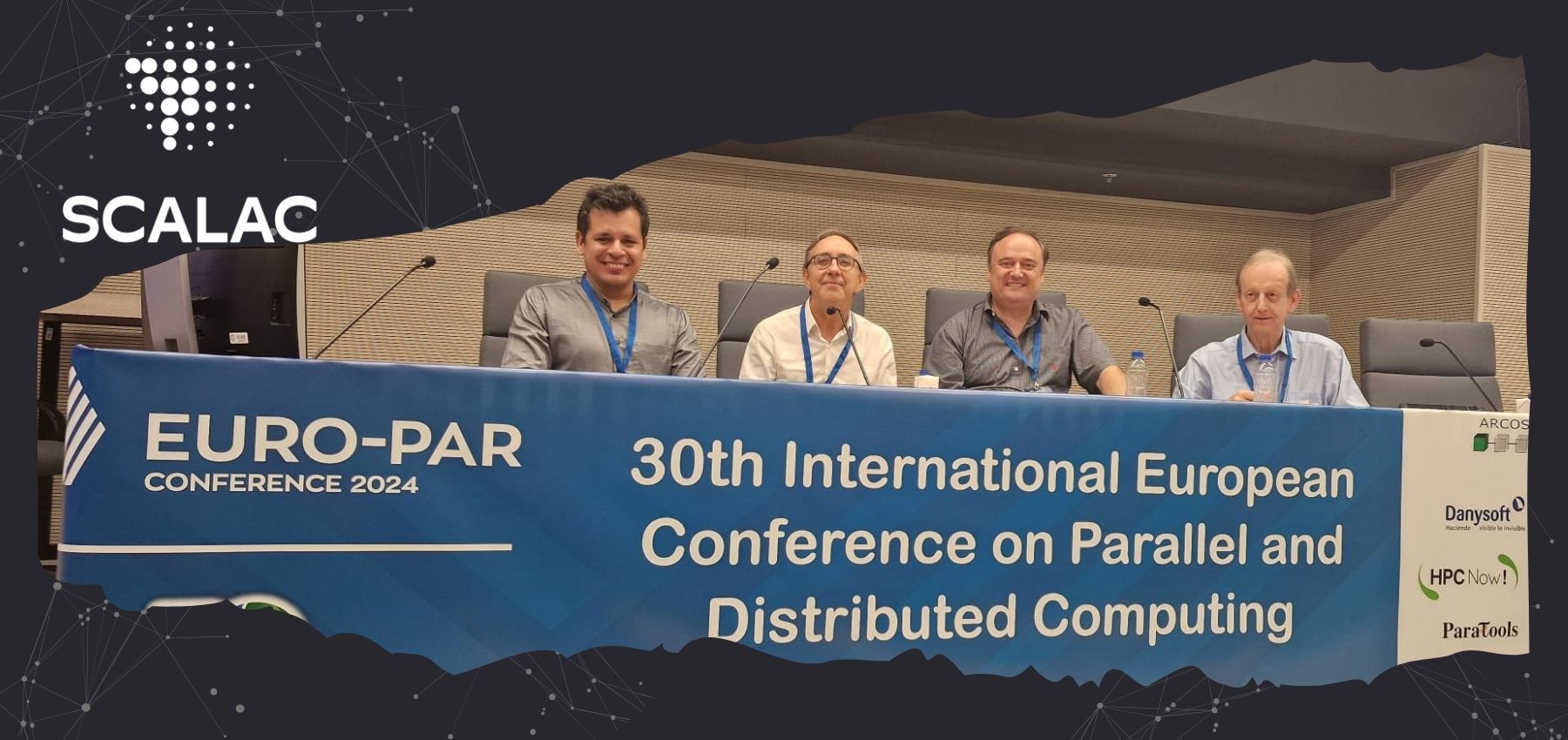Strengthening Scientific Cooperation in Supercomputing between Europe and Latin America
During the week of August 26 to August 30, 2024, Carlos III University of Madrid hosted the latest edition of the Euro-PAR 2024 conference. As part of this event, SCALAC organized the EuroHPCLAC Panel, bringing together high-level researchers in supercomputing from Europe and Latin America. This event took place within the framework of the growing scientific cooperation between both regions, a collaboration that has proven to be very productive in high-impact projects such as EELA, EELA-2, RICAP, and RISC2.
The panel was moderated by Dr. Carlos Jaime Barrios H., from the Industrial University of Santander (UIS) and General Manager of SCALAC, and featured the participation of high-performance computing experts, including Jesús Carretero (UC3M, Spain), Pascal Bovry (University of Luxembourg, Luxembourg), and Philippe Navaux (UFRGS, Brazil / SCALAC). The discussion focused on key topics for the joint development of capabilities in parallelism and distributed systems, from infrastructures to advanced applications.
Scientific Cooperation: Challenges and Opportunities
One of the central points of the panel was to identify specific topics in which scientific collaborations between Europe and Latin America can be enhanced, taking into account the capabilities and competencies of actors on both sides of the Atlantic. The panelists highlighted the need to strengthen cooperation through ambitious and concrete scientific projects, aligned with the common digital agenda between Europe and Latin America and the Caribbean (EU-LAC).
The strengths and weaknesses of current scientific cooperation were discussed, as well as the context that can be leveraged and areas that require additional support. Among the proposals, the creation of common academic frameworks for master’s programs, which could be led by the University of Luxembourg, and the establishment of strategic relationships with European startups and technology companies to promote joint innovation, were suggested.
New Alliances and Regional Cooperation
During the panel, the need to include new European partners in cooperation was emphasized, without disregarding the traditional partners who have supported the various projects with Latin America and the Caribbean. Additionally, the importance of Latin America and the Caribbean acting as a cohesive regional bloc, coordinated by SCALAC, rather than as individual countries, was underlined to maximize the impact of these collaborations.
The EuroHPCLAC Panel, organized and fully developed by SCALAC, made it clear that scientific cooperation in supercomputing between Europe and Latin America has a promising future, with the potential to generate significant advances in research and technological innovation. The results and agreements from this edition will be fundamental for the planning of future projects within the framework of international collaboration.


